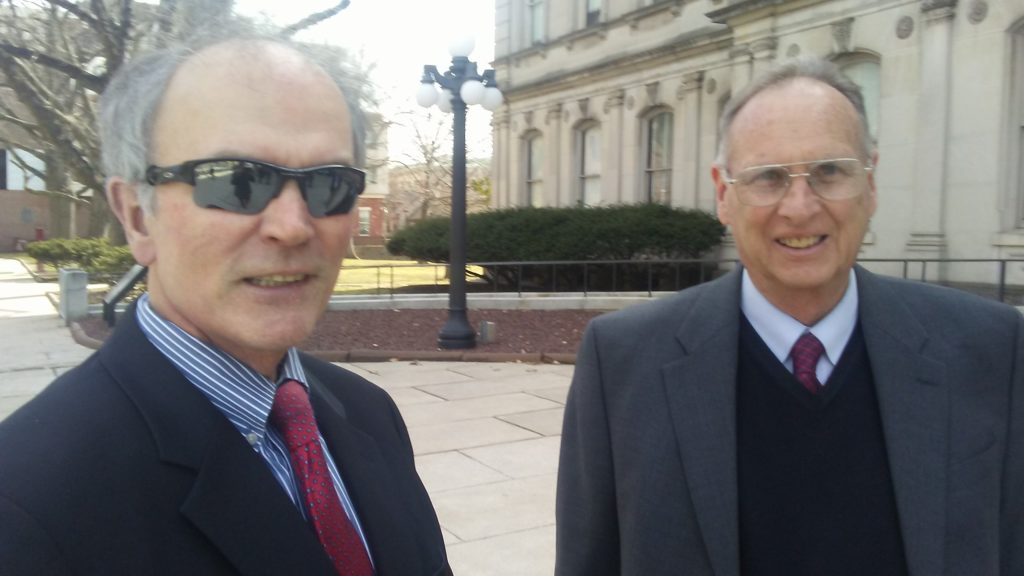Stronger, Healthier Political Parties in NJ Could Mean Less Angst for Voters
Listen to audio version of this article

Despite Americans holding a long and deep skepticism toward political parties, ironically it could be the parties that restore stability to our polarized political environment.
When the constitutional convention was held in 1787, estimates were that one in six Americans were able to participate in politics, let alone hold public office.
Despite the revolt against British rule, democracy was anathema to the founding fathers.
According to Forrest McDonald, author of the Intellectual Origins of the Constitution “by 1787 a number of Americans had come to believe that even a modicum of democracy was incompatible with security for liberty and property.”
Though the framer’s purpose in introducing a plan of government was radical for its time, most delegates to the constitutional convention shared with ancient and medieval philosophers the view that democracy was dangerous and would lead to anarchy.
Therefore, they created a republic that would span a vast territory and consist of the states and national government, one that in their opinion would best unify the young nation.
The framers’ fear of democracy, believed by many to be a prescription for mob rule, matched their concern over faction, or party. The republic was a form of government they felt would control both.
In Federalist Paper Ten, James Madison wrote, “it clearly appears, that the same advantage which a republic has over a democracy, in controlling the effects of faction [party], is enjoyed by a large over a small republic . . .”
While the American system of government is a republic, not a democracy, the fact is that as the years passed America became more democratized. Today’s citizens are much more receptive to democracy than past generations. At the same time, skepticism remains toward political parties.
Paradoxically, it could be political parties that provide a cure for a political environment that has become increasingly divided and faction riddled.
Disciplined political parties organize majorities in government that are critical for governing. By organizing executive, legislative, and even judicial functions of government they provide a means by which public policies not only can be enacted but implemented.
As long-standing institutions, political parties provide a training ground for future leaders by enabling individuals to learn first-hand about the relationship between elections and governance, and to gain experience so necessary for bringing people together on behalf of the public good.
In short, political parties encourage leaders to work together rather than at cross purposes and provide an environment that promotes permanent majorities. In contrast, single issue interest groups create division.
Importantly, political parties provide a cue to voters, who today often suffer from information overload, particularly due to the heavy influence of social media.
Even for the most engaged citizen, it can be a daunting to sort through the blizzard of facts provided by broadcast advertising, direct mail, a 24-hour news cycle, and a myriad of social media sites.
Through their labels and symbols, political parties simplify matters for voters, making the buffet of information more digestible.
In this hyper-charged, information-saturated political environment, party affiliation and party labels may be just what is needed to help voters better decide how to vote. In this way, they facilitate their traditional function of providing a link between the people and their government.
Finally, and importantly, political parties turn people out to vote. Because they represent a broad coalition of people, rather than a narrow group of individuals interested in a single issue, political parties are especially equipped to foster an increase in voter turnout through their efforts to get people to the polls. In this time of low voter turnout, this ability is especially valuable.
The New Jersey Election Law Enforcement Commission and its Executive Director have made several recommendations to strengthen political parties in New Jersey.
First, ELEC has recommended raising contribution limits that apply to political parties. Second, it has proposed that state political parties be permitted to participate in gubernational elections. Third, it recommends that political parties be removed from the pay-to-play law while continuing political committees (PACs) be included. Fourth, it has proposed an end to the antiquated ban on county parties donating to each other. Lastly, the writer (not the commission) has suggested a tax credit should be provided to taxpayers contributing to political parties.
Strengthening political parties in New Jersey, which have experienced a significant drop in fundraising at all levels of government, would not only enhance the electoral process but government as well. Political parties, which have the potential to bring about working majorities, may be just what is needed to bring more unity to a fractured electoral and governmental landscape.
Jeff Brindle is the Executive Director of the New Jersey Election Law Enforcement Commission.
The opinions presented here are his own and not necessarily those of the Commission.






Huh. Interesting. I had no idea that George Norcross changed his name to Jeff Brindle. Very informative piece in that respect. Also props, not enough people brazenly suggest more power for the political machines in New Jersey, and I don't know of any who are brave enough to suggest a wholesale powergrab while giving absolutely truthful, yet disgustingly unappealing reasoning. Well done George whoops Jeff.